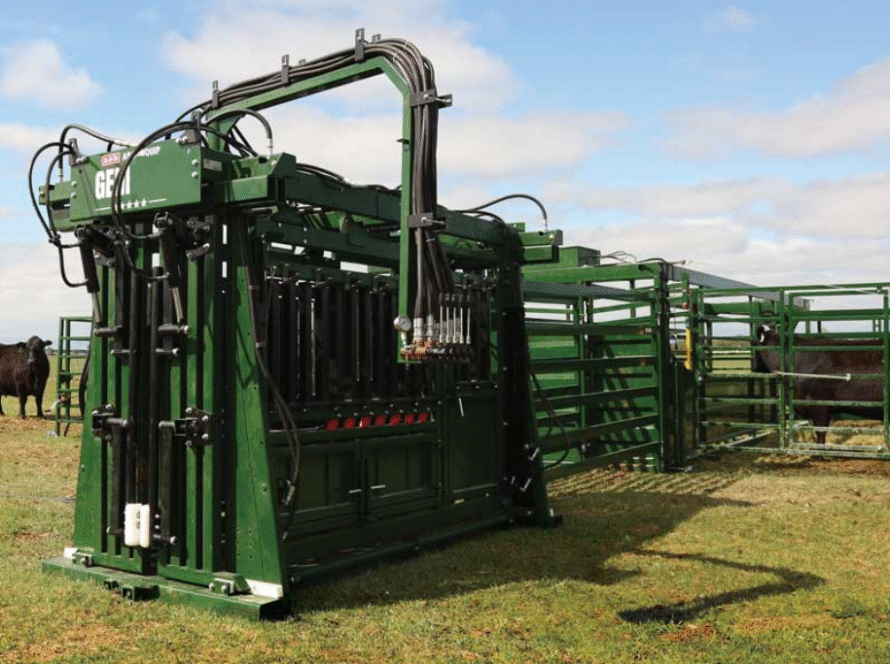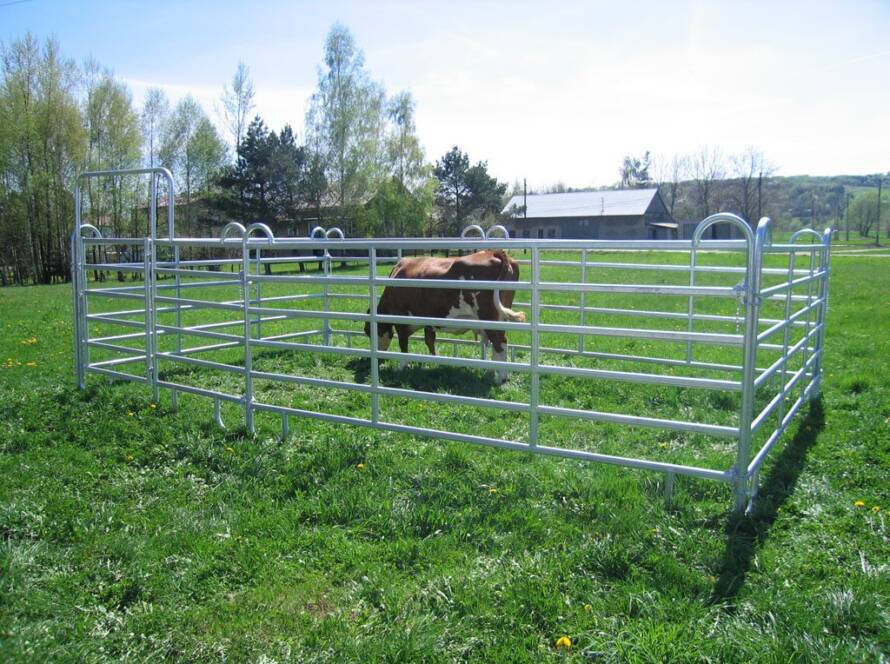Introduction
Small-scale farming brings with it a unique set of joys and challenges. If you’re raising ponies or smaller equines, one of the first infrastructure decisions you’ll make is choosing the right panels for their enclosures. Pony panels aren’t just downsized versions of larger livestock panels—they need to be safe, appropriate for the animals’ size, and easy for farmers to manage.
When working with ponies, standard cattle gates and panels or even general livestock gates and panels may be too large or heavy-duty. Conversely, flimsy fencing can quickly become a hazard, leading to injuries or escapes. That’s where high-quality products from providers like Florida Panels and Gates come in. They offer durable, well-designed solutions that are tailored for the specific needs of different livestock operations, including pony enclosures.
In this guide, we’ll explore what makes the perfect pony panel setup for small-scale farms. From material types and sizing to layout tips and maintenance, you’ll learn everything needed to build a secure, functional space for your ponies.
Understanding Pony Panel Needs
Ponies may be small, but they’re strong, smart, and sometimes stubborn. Many farm owners underestimate how much force or wear a pony can apply to a panel over time. Unlike cattle or goats, ponies often use their noses and bodies to test fences, and they’re clever enough to exploit weak points.
When selecting farm gates and panels, think about:
- Height: Panels must be tall enough to prevent climbing or jumping.
- Visibility: Ponies can get spooked easily; open designs with good visibility reduce anxiety.
- Safety: Rounded edges and smooth welds are essential to prevent injury.
Choosing purpose-built pony fencing from a trusted source like Florida Panels and Gates ensures that you’re not overbuilding (wasting money) or underbuilding (risking escapes or harm).
Key Features to Look For
When comparing gates and panels for sale, it’s important to know which features matter most for pony enclosures. Here’s what to prioritize:
1. Panel Height and Spacing
Aim for panels at least 48 inches high. Anything shorter might allow a pony to lean over or try to escape. Additionally, the spacing between bars should be small enough to prevent legs or heads from slipping through.
2. Lightweight but Durable
Small-scale farms often need flexibility in layout. Lightweight panels are easier to move and adjust, especially when used for temporary corrals or rotating pastures. However, they should still be strong enough to withstand nudges, kicks, and weather. Florida Panels and Gates designs offer this balance—sturdy without being unwieldy.
3. Rust-Resistant Materials
Corrosion is a major issue in farm environments. Galvanized steel is often the best material choice. Look for panels and gates for sale with proper coatings to withstand moisture and sun exposure.
4. Safe Latching Systems
A good latch isn’t just about keeping ponies in—it’s about ease of use. Reliable gate systems prevent injuries, accidental openings, and frustration during feeding or herding.
Pony Panels vs. Other Livestock Panels
It’s common to consider repurposing existing cattle gates and panels or corral panels and gates, especially when expanding a mixed-use farm. While that may work temporarily, there are key differences:
- Cattle panels are often taller and more reinforced, but can be overkill—and costly—for ponies.
- Corral gates and panels are suitable for herding large livestock into tight spaces, but can restrict visibility and movement for smaller animals.
- Horse panels and gates are closer in design to what ponies need, but might not have the ideal bar spacing or lighter weight preferred for small-scale setups.
That’s why pony-specific enclosures from Florida Panels and Gates are a better fit. You’ll avoid issues like gaps that are too wide or overly aggressive spacing that can trap hooves.
Layout Tips for Small-Scale Pony Enclosures
Once you’ve selected the right panels and gates for sale, the layout is the next critical factor. Even with limited acreage, a smart layout can provide your ponies with comfort, safety, and room to thrive.
1. Allow for Movement
Ponies need exercise and grazing space. Design enclosures with rounded corners and multiple access gates to prevent crowding and make movement easy.
2. Separate Feeding Zones
Use smaller farm gates and panels to section off feeding areas. This reduces competition and allows you to manage dietary needs more effectively.
3. Incorporate Shade and Shelter
Even a simple lean-to structure within the panel system can make a big difference. Weather protection keeps ponies healthy and content.
4. Use Flexible Corral Systems
Consider modular corral gates and panels if you need temporary holding areas for vet visits, training, or separation.
The Benefits of Buying from Florida Panels and Gates
Not all panel suppliers offer the same quality, variety, or support. Florida Panels and Gates has built a strong reputation by offering well-crafted, long-lasting products for livestock owners across the board.
Why choose them?
- Tailored Solutions: From pony panels to full livestock gates and panels, you get products made for real-world farm environments.
- Durability Tested: Materials are rust-resistant and built to handle both the animals and the elements.
- Custom Sizes Available: You can get exactly what you need for your specific space, not just standard sizes.
- Supportive Service: Their team offers advice, layout guidance, and ongoing support for farmers of all sizes.
When comparing gates and panels for sale, it makes sense to choose a supplier that understands the diverse needs of small-scale farms. Florida Panels and Gates delivers exactly that.
Integrating Pony Panels into Mixed Livestock Farms
Many small-scale farms include more than just ponies. Chickens, goats, and even a few cattle or pigs may be in the mix. In these settings, having adaptable horse panels and gates or corral panels and gates that can be integrated into a broader system is a major advantage.
Consider:
- Using dividers to keep species separate during feeding.
- Investing in interchangeable livestock gates and panels that can be reconfigured as your herd grows.
- Making sure pony enclosures connect logically with handling or medical care areas.
Choosing the right panel system now prevents complicated upgrades or full replacements later.
Maintenance and Longevity Tips
Once you’ve set up your pony panel system, maintenance is key to getting the most out of your investment.
Keep in mind:
- Inspect regularly for wear and tear. Look for rust, loose welds, or bent bars.
- Clean debris and buildup around gate hinges and latches to keep them functional.
- Re-anchor panels after storms or strong winds to prevent shifting or leaning.
Panels from Florida Panels and Gates are designed with longevity in mind, but regular attention ensures they’ll last for years—saving you from early replacements or costly fixes.
Conclusion
Choosing the right pony panels for your small-scale farm is more than just picking a size—it’s about ensuring safety, functionality, and ease of management. Ponies have specific needs, and meeting them requires panels that are thoughtfully designed and made from durable, farm-tested materials.
Florida Panels and Gates offers high-quality solutions that small farms need to create safe, efficient enclosures for ponies and other animals. From smart sizing to customizable gate options, their lineup of farm gates and panels supports both your animals and your farming goals.
Investing in the right setup now helps ensure that your ponies are happy, healthy, and secure for seasons to come.
FAQs
1. What makes pony panels different from standard livestock panels?
Pony panels are typically shorter and feature closer bar spacing to prevent escapes and injuries, unlike larger cattle gates and panels designed for heavier livestock.
2. Can I use horse panels for ponies?
While horse panels and gates are similar, they may not offer the ideal size or spacing for ponies. Panels from Florida Panels and Gates designed specifically for ponies are a better fit.
3. Are lightweight panels strong enough for ponies?
Yes, especially those made with high-quality galvanized steel. Lightweight doesn’t mean weak when you buy from reliable providers like Florida Panels and Gates.
4. Do pony panels work for other animals, too?
In many cases, yes. You can use them for goats, sheep, and young livestock—but always ensure the spacing and height are appropriate.
5. Where can I find the best panels and gates for small farms?
Florida Panels and Gates offers a wide range of panels and gates for sale, with customization options suited for both small-scale farms and larger operations.



